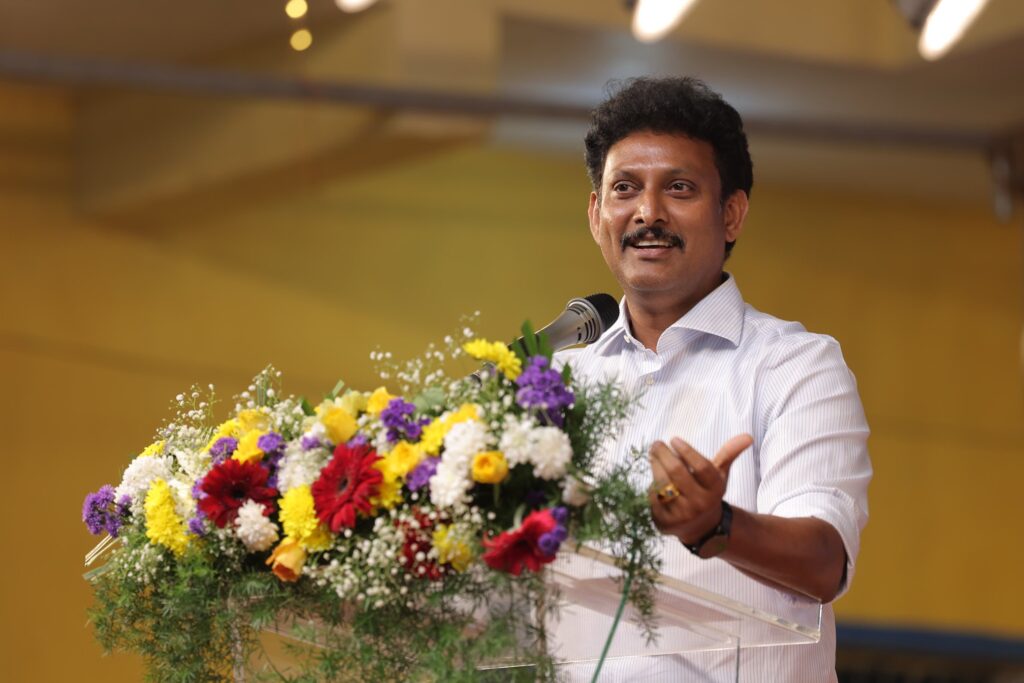
The Two-Language Policy in education is an important language policy adopted by the Government of Tamil Nadu. From the tenure of Tamil Nadu’s first Education Minister, Tiruppur Subramania Avinashilingam Chettiar, to the present School Education Minister, Anbil Mahesh Poyyamozhi, the state has remained steadfast in upholding this policy. The Two-Language Policy stands as a distinctive feature of Tamil Nadu, continuing to serve both educational progress and social harmony.
Background of the Language Protests

In Tamil Nadu, the first attempt to impose Hindi was opposed as early as the 1930s, when Thanthai Periyar led protests against Rajaji’s move in 1935. Later, in 1965, when the then Congress government sought to make Hindi the official language, widespread agitations erupted across Tamil Nadu.
In the years that followed, under the leadership of Perarignar Anna and Muthamizh Arignar Kalaignar Karunanidhi, the language struggle reached its decisive conclusion.
Opposition to the Three-Language Policy
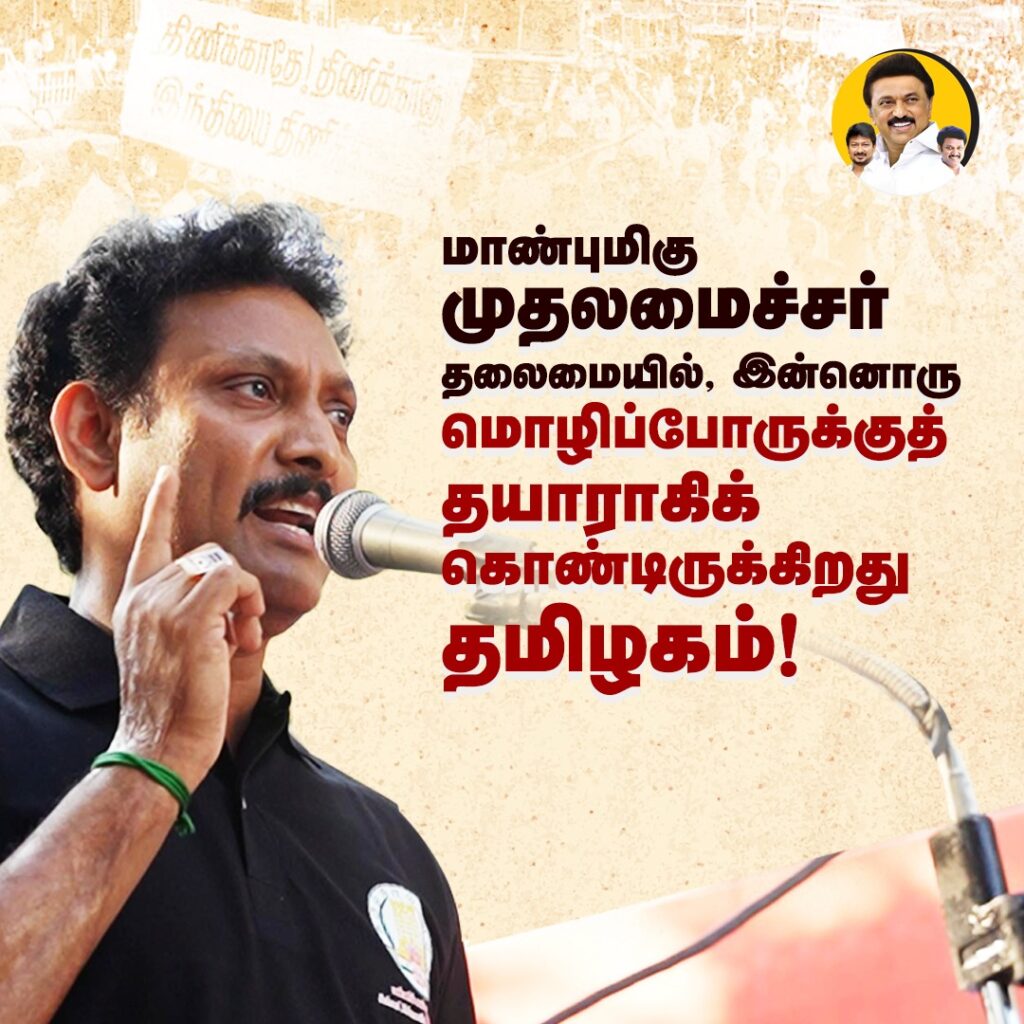
Under the guise of the new National Education Policy, the Union Government has once again attempted to impose the three-language formula, thereby sparking a renewed language struggle in Tamil Nadu. Following the path shown by Muthamizh Arignar Kalaignar, and under the guidance of Hon’ble Chief Minister M.K. Stalin, Minister Anbil Mahesh Poyyamozhi has been voicing strong opposition to the three-language policy proposed in the new education framework.
Tamil Nadu’s Quality of Education – A Model for All of India
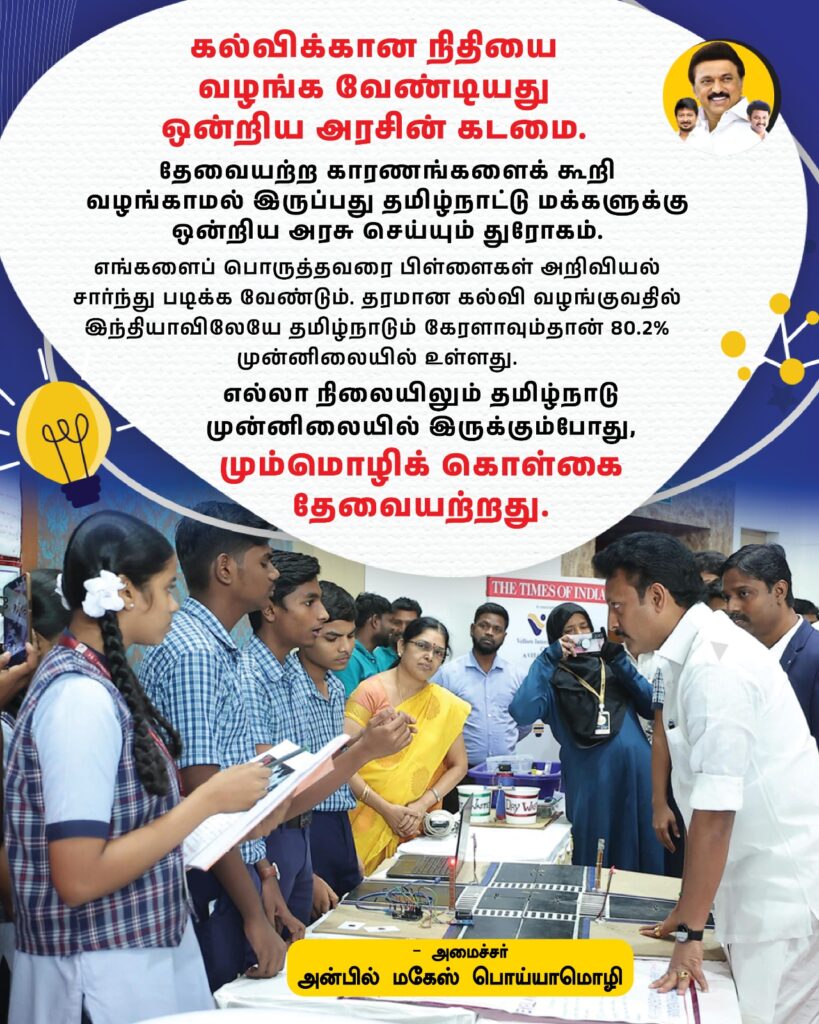
Recently, School Education Minister Anbil Mahesh staged a strong protest against the non-disbursement of ₹2,152 crore in education funds allocated to Tamil Nadu under the Samagra Shiksha scheme. According to him, Tamil Nadu, by following the Two-Language Policy, has consistently excelled in higher education and employment opportunities, while states that have adopted the Three-Language Policy continue to lag behind in education. The Two-Language Policy practiced in Tamil Nadu has produced excellent outcomes in both higher education and job placements. Minister Anbil Mahesh further emphasized that Tamilians are excelling across various fields both in India and abroad.
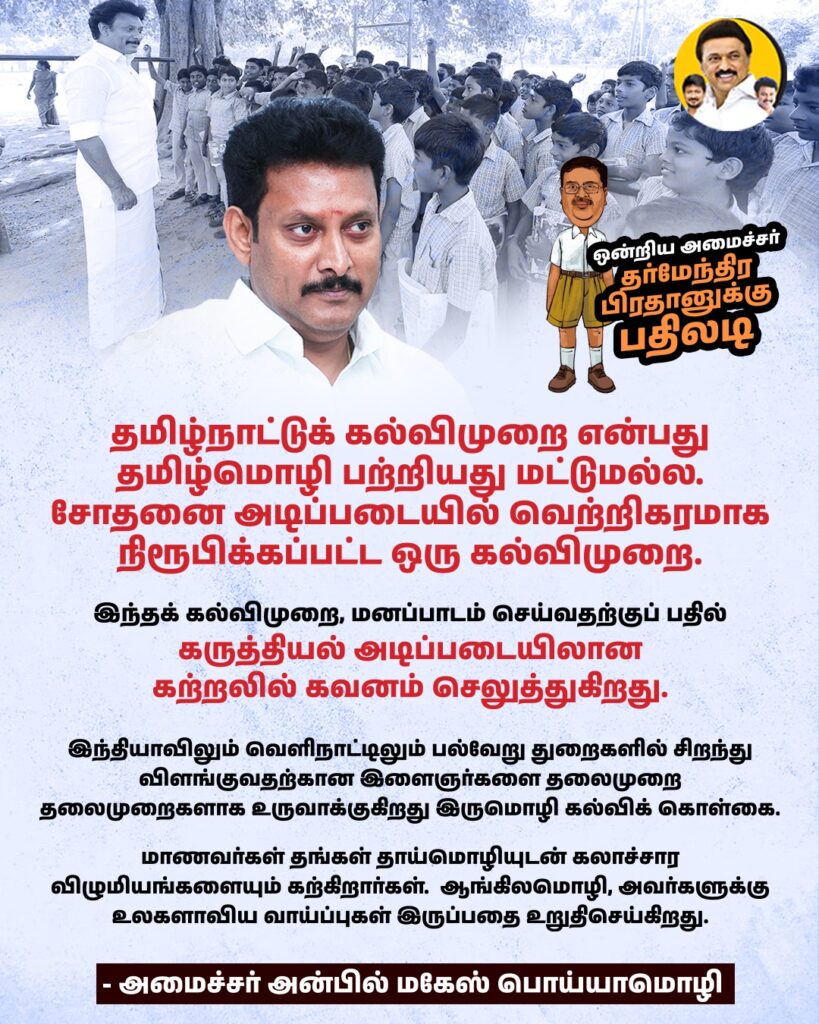
He stated, “Tamil Nadu possesses a higher standard of education than the national average. The Two-Language Policy of Tamil Nadu should serve as the model for the entire country’s education system.”
Not NEP 2020, but RSS 2020!
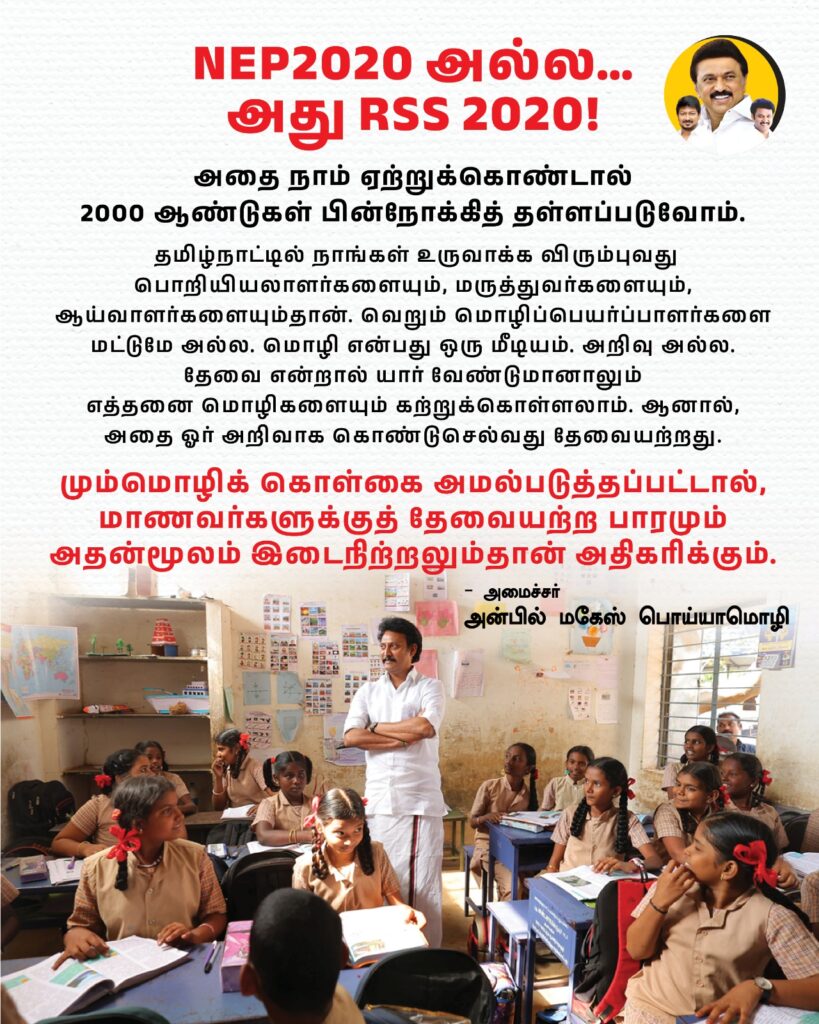
In continuation of this stance, Minister Anbil Mahesh Poyyamozhi has reiterated his opposition to the Three-Language Policy in interviews with various newspapers and media channels. He stated that a proper analysis of the new National Education Policy (NEP 2020) reveals that it essentially reinforces RSS ideology, making it more accurately “RSS 2020.”
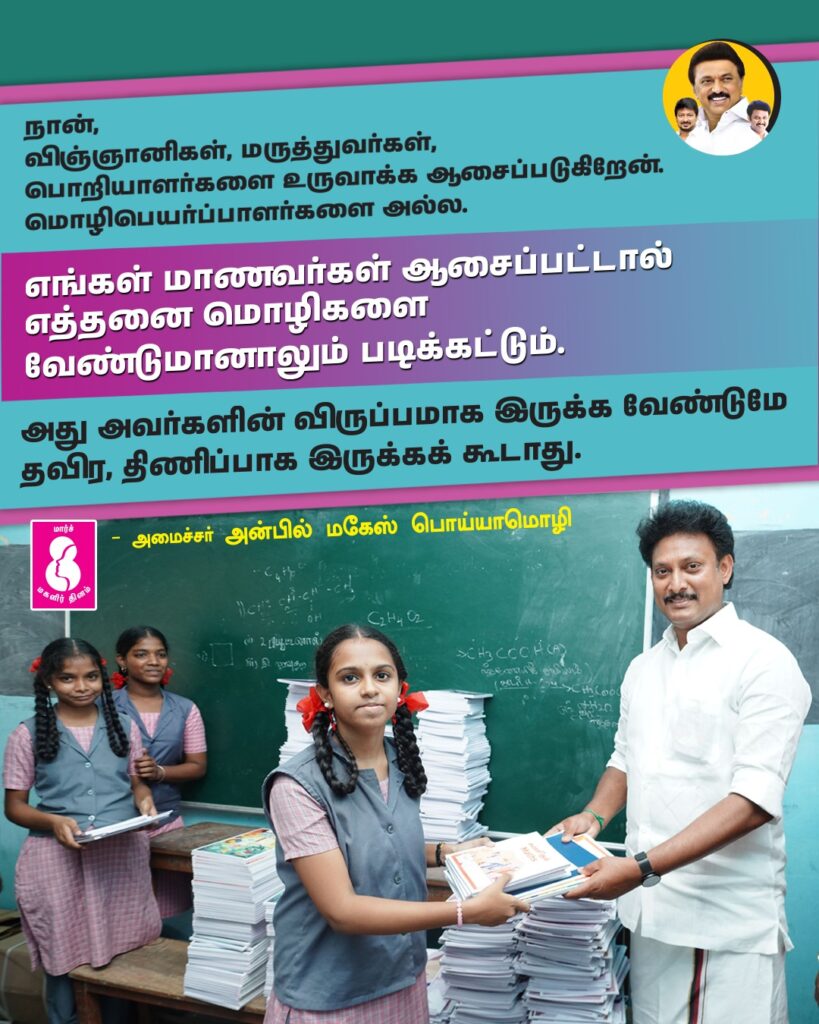
He further emphasized that in the evolving modern era, our third language should be scientific languages like C, C++, Java, and AI, and that Tamil Nadu remains the only state in India to allocate the highest funding specifically for education.
Tamil Nadu’s Firm Stand
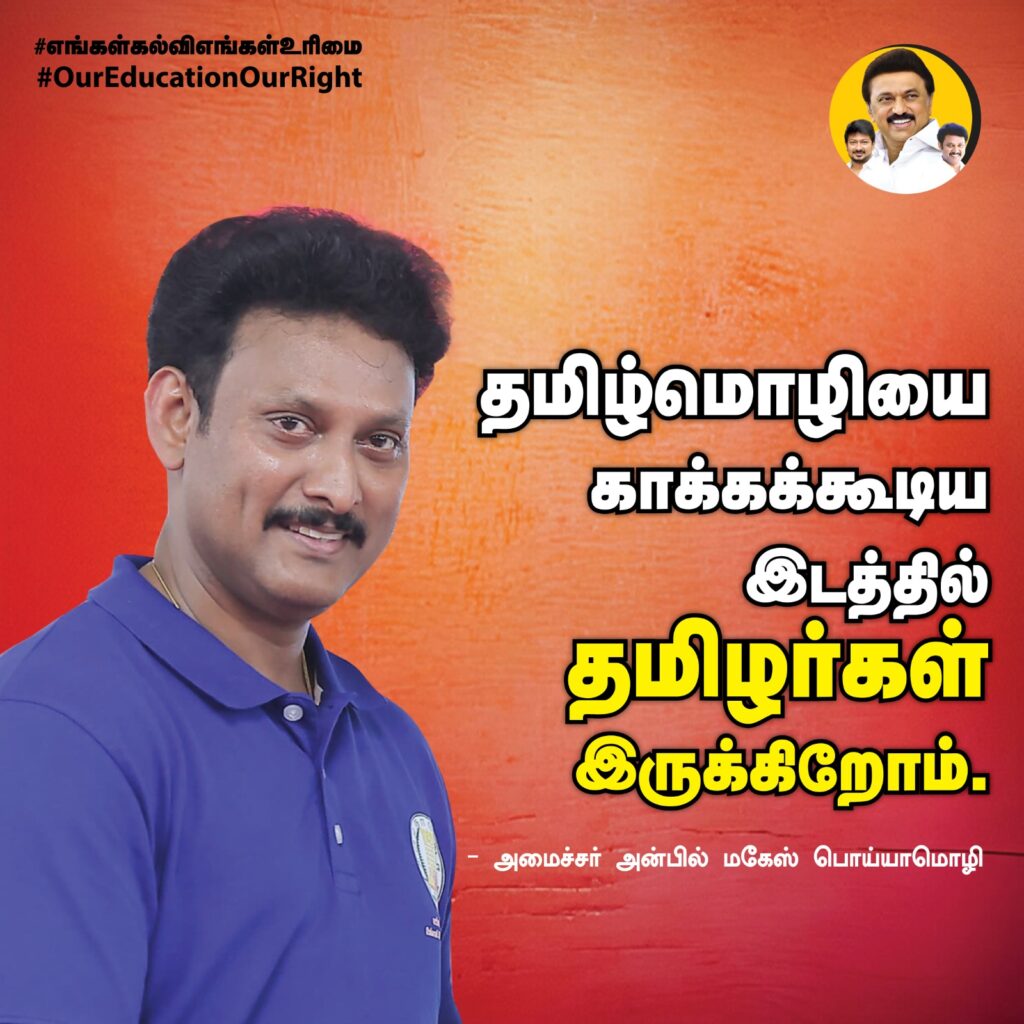
Tamil Nadu’s education policy emphasizes thinking in one’s mother tongue, Tamil, for the development of successive generations, while also using English to connect with the world and scientific advancements. Minister Anbil Mahesh Poyyamozhi has clearly stated that there is no need for an unnecessary third language, and that Tamil Nadu will never accept the new education policy that attempts to revive outdated practices in the era of science-driven development.
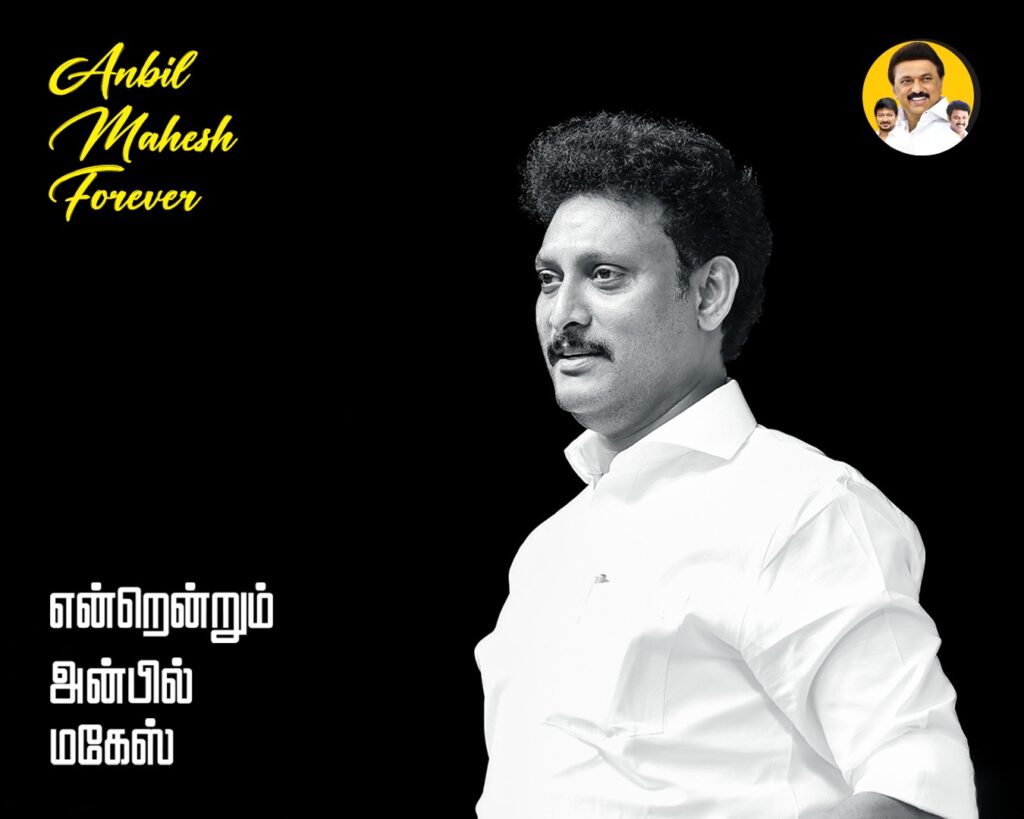
Follow us
Whatsapp Channel – bit.ly/anbilmahesh4evr
X ID – https://x.com/AnbilMahesh4evr
Youtube – https://youtube.com/@AnbilMahesh4evr
Facebook – https://fb.com/AnbilMahesh4evr
Instagram – https://instagram.com/AnbilMahesh4evr
